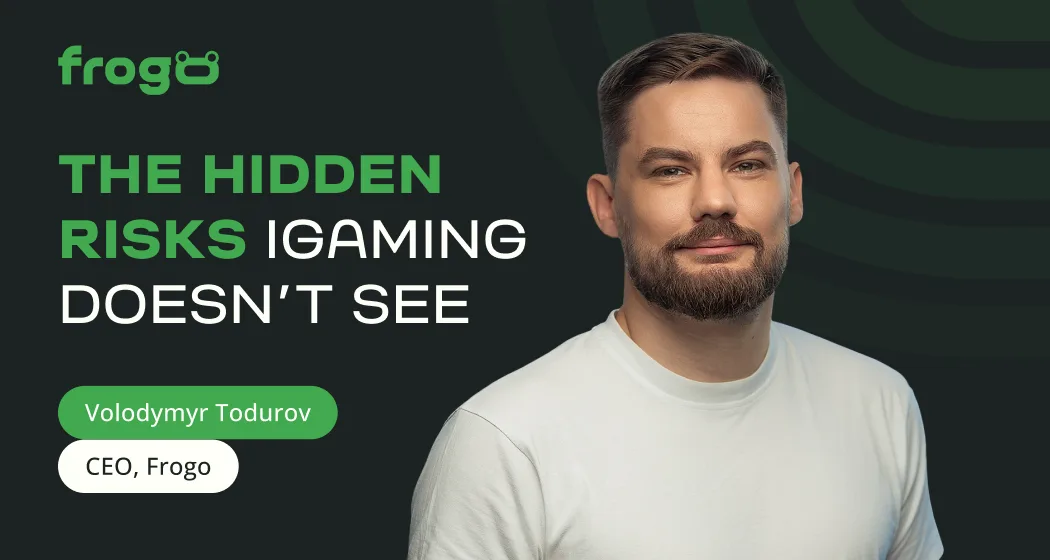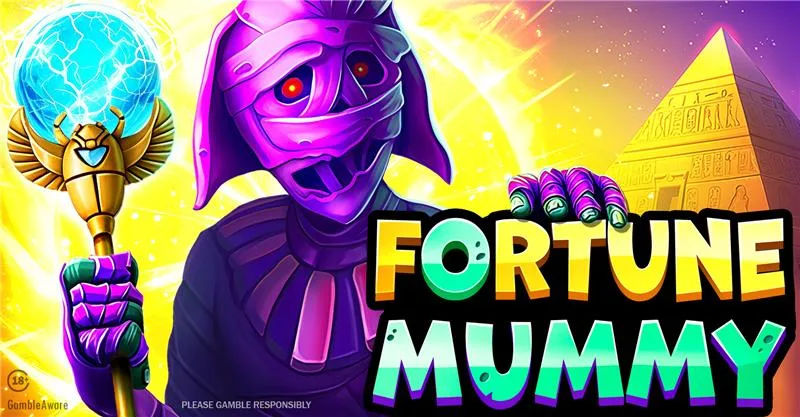Social media and search platforms have become powerful tools for the promotion of casino & betting services and products.
According to the UKGC research, in 2020, 49% of consumers have seen gambling ads on social media platforms.
However, there are certain rules and regulations that limit the extent of gambling advertising in media. And as we live in a constantly changing world, the updates in advertising guidelines from the companies can have a significant impact on online gambling businesses.
Read this article to know about the latest updates in the advertising guidelines of social medial platforms and search engines that had an influence on the iGaming industry and were highlighted in the hottest gambling business news.
Google and gambling advertising
Google is a search engine, which is widely used for advertising gambling services: be it SEO campaigns, or simple ads on Google pages, or promotion in Google Play apps, etc.
To run their ads on Google, gambling ops have to:
- receive Google certification;
- target approved regions;
- don’t target minors;
- have a landing page, where information about responsible gambling is displayed.
It also should be noted that, when it comes to the marketing of gambling, country restrictions apply. According to Google advertising policies, casino and sportsbook ads can be shown only to users in regions where gambling is legal. And in some regions (Russia, Poland, and Slovenia) only lottery adverts can be displayed.
Google also displays certain gambling ad categories by default, while the others should be manually allowed by the user.
| Default gambling ad categories on Google | Other categories |
| betting on financial spread;sports competitions and match promotion;fantasy sports;location-based gambling;accessories for offline gambling. | bingo;lottery;online casino;sports betting;betting tips and odds;education materials;bonus codes. |
These are the basic Google ad policies that concern gambling. But Google updates gambling ads rulebook is regularly. So, lets’ review the most recent changes in the Google advertising rules that concern the gambling sector.
Promotion of social casinos on Google
Social casino games, which don’t have monetary prizes, can be promoted only to two groups of countries and certain restrictions apply. Adds are allowed only for licensed casino operators (or an advertising agency working on ops’ behalf); if the advertisers don’t use real-money gambling logos, marks, or names.
Group 1 is comprised of 35 countries, including GB, the US, and most of the European countries, such as:
- Austria;
- Bulgaria;
- Czech Republic;
- Denmark;
- Finland;
- France;
- Germany;
- Greece;
- Hungary;
- Italy;
- Latvia;
- Lithuania;
- Netherlands;
- Norway;
- Portugal;
- Romania;
- Serbia;
- Slovakia;
- Spain;
- Sweden;
- Switzerland.
The second group includes the following Asian states:
- Hong Kong;
- India;
- Korea;
- Malaysia;
- Taiwan;
- Thailand;
- Vietnam.
The launch of real-money gambling apps on Google
Gambling ads and the casino applications of the Play market is the other vital element of a marketing strategy. However, before 2021, real-money gambling apps were allowed on Google Play only in four countries:
- the UK;
- Ireland;
- Brazil;
- France.
The following games of chance can be played for real money via Google Play apps:
- casino;
- lottery;
- betting on sports;
- daily fantasy sports (DFS).
But starting from March 1, 2021, Google has updated its gambling and games policy. And now, 15 more countries can publish gambling apps and launch ads. Currently, players from the following countries can enjoy casino and betting apps on the Google Play market:
- Australia;
- Belgium;
- Canada;
- Colombia;
- Denmark;
- Finland;
- Germany;
- Japan;
- Mexico;
- New Zealand;
- Norway;
- Romania;
- Spain;
- Sweden;
- the United States.
In addition, Google also allows advertising gambling products, real-money games, and tournaments.
This gives an excellent option for online casinos to increase user acquisition and promote their services. In the near future perspective, it even could help channel casino players from the black markets to licensed operators.
Before releasing their applications to the Play Store, online casino software developers and ops have to go through a thorough evaluation process. Google checks whether a particular gambling operator has a license to provide casino or betting services.
Players that use iOS don’t have to worry that their favorite casino app will be blocked, as Apple Store has allowed casino, betting, and poker apps for some time now.
Local changes in Google ad policies
Google routinely amends its gambling and gaming ad policies, banning or allowing certain types of ads, to reflect the changes in the gambling laws of different states. The advertisers should note that gambling ads are allowed only from licensed and certified providers who have been certified by Google.
The most important updates can be seen in the table below.
| Update date | Country | Allowed ad category |
| 15.10.2021 | US, Florida | sports betting |
| 12.10.2021 | US, Connecticut | sports betting, online casino, daily fantasy sports |
| 12.10.2021 | Turkey | lottery, sports betting, gambling-related promo products (bonus codes, vouchers), educational materials, betting odds, and tips. The promotion of offline gambling is banned. |
| 01.10.2021 | Netherlands | online casino, daily fantasy sports |
| 21.09.2021 | US, Colorado | pause in certification of DFS advertisers |
| 01.09.2021 | US, Wyoming | sports betting |
| 27.08.2021 | US, Arizona | sports betting, DFS |
| 29.06.2021 | Lithuania | Ban on ads about online gambling, land-based casino, promotional products, educational content, betting tips & odds |
| 23.06.2021 | Germany | virtual slots, online casino, online poker |
| May 2021 | US, Virginia | sports betting |
| January 2021 | US, Michigan | sports betting, online casino |
| January 2021 | US, West Virginia | online casino |
| November 2020 | Hungary | state lottery |
| August 2020 | US | DFS (Alabama, Iowa, Michigan), sports betting (Colorado, Dist. of Columbia, Illinois, New Hampshire, Tennessee), online horse racing (California, Illinois, Indiana, Kentucky, NY, Ohio, Michigan). |
| June 2020 | Spain | Online casino, digital sports betting, online bingo & raffles, online lottery, gambling promos (bonus codes, vouchers), educational materials, betting tips & odds |
| March 2020 | Brazil, Bulgaria, Greece, Lithuania, Russia, Slovakia, Sweden | social casino games |
| February 2020 | Switzerland | online gambling |
Future of the relationship between Google and gambling
In January 2020, Google has announced that it would ban all third-party cookies from its Chrome browser. The cookies that monitor users’ activity and help advertisers to target their ads are already blocked in Safari, Microsoft Edge, and Mozilla Firefox due to privacy concerns. Although initially, the company’s decision was supposed to take effect in 2022, this summer Google delayed the ban of third-party cookies to 2023.
But what does it mean for the iGaming industry? Online gambling operators and, namely, casino affiliates will see a major change in their promotion strategies. Gambling affiliates widely use third-party cookies to track conversions on their links. So, when this tool is gone, it will become harder for advertisers to optimize and personalize promo campaigns. Casino and sportsbook affiliates will be forced to find alternatives to attribute converting traffic correctly. Among the tracking methods that they are already using are:
- server-to-server tracing;
- first-party cookies.
Also, Google has announced that it’s going to replace third-party cookies with APIs, which allows collecting data without intruding into users’ privacy.
As for the Google ads in general, it will continue to be one of the most efficient ways of promotions of gambling services, as the experts state that 90% of consumers on the Internet see ads on this search engine. So, operators will have to adapt to all Google guidelines and rules.
Facebook’s advertising policies’ impact on the gambling industry
Meta – the social media giant that owns Facebook, Instagram, and WhatsApp – has been the biggest online platform for the advertising of all kinds of services. However, on Facebook, betting and gambling ads weren’t allowed up until recently.
Thankfully, now, advertisers can promote online gambling content on this social media after getting written permission from Facebook. This policy includes ops and affiliates that advertise the following gambling products:
- betting;
- lottery;
- raffle;
- casino;
- DFS;
- bingo;
- poker;
- online skill-based contest;
- sweepstakes.
However, several ad categories can be published without Facebook certification, including:
- land-based gambling establishments or activities;
- social casinos;
- handicappers;
- fully free-to-play games;
- state lottery.
Ops can run betting or casino ads exclusively in the regions where online gambling is legal, they also should comply with all the laws and Facebook policies and can’t target promo campaigns at users under 18 years of age.
If you want to use Facebook for betting advertising, you may find it difficult to adapt to frequent changes in the sportsbook offers. But dynamic creatives can help in adding real-time data to your campaign.
Running your sportsbook or casino advertisements on Facebook though has its challenges, can help gain an audience with higher retention. The main advantage of advertising on social media is that you can categorize your target audience for higher ROIs.
Read this article further to know about the other changes in the Facebook rulebook and how they will affect gambling ads.
What does Facebooks’ Metaverse mean for gambling?
Recently, the company’s founder and CEO, Mark Zuckerberg, has announced that the tech holding is rebranding and becoming Meta. Zuckerberg has consequently introduced the term “metaverse” – a digital world, created utilizing virtual reality, video, and augmented reality, where users could live, work, and play, as well as shop. Users will need VR headsets to enter this world.
It is not clear, how does the gambling industry fit into this world, but the possibility of the next-level user experience for the player sounds very attractive.
Meta to restrict targeting for ads on sensitive topics
In recent social media updates of policies, Facebook’s Meta has announced that it will prevent advertisers from abusing the Facebook ads’ targeting options. From January 19, 2022, the tech company will remove the detailed targeting options for ads on sensitive topics. The advertisers won’t be able to target people based on:
- health;
- sexual orientation;
- religious beliefs;
- political position;
- social issues;
- causes;
- organizations;
- figures.
The advertisers, however, will still be able to adjust their promo campaigns by age, gender, and location.
Currently, the aforementioned topics include race, politics, and sexual orientation. Although games of chance are not mentioned yet, they may soon join the list. Besides, according to Meta VP Graham Mudd, the company will give more control to its users regarding the contents of gambling ads early in 2022.
Moreover, in November 2021, Facebook has launched a feature that allows its users to opt-out of betting ads.
Advertising rules on other spaces
The promotion of gambling services on online platforms is not limited to Google and Facebook, other search engines and social media sources are also quite popular among advertisers that promote casino and betting services. And ad policies of these companies can also be quite complicated and change a lot.
Microsoft bans native ads
Microsoft, which owns Microsoft Edge browser, Outlook, and MNS, has been against gambling ads for a long time. The most recent update in November 2021 has seen Microsoft blocking native advertising of gambling-related services by its partners.
Rules for promotion of gambling on Twitter
Twitter allows the promotion of gambling-related content in case it targets the countries where these services are allowed legally. A few exceptions include:
- hotels with a casino if the focus is on the hotel;
- poker chips, pachinko machines, and other gambling accessories;
- news about DFS.
The most recent updates include:
- September 2021 – online and offline poker ads allowed in the US;
- July 2021 – land-based casino ads are allowed in Australia; online casino gaming, online betting on synthetic & instant lotteries, and online scratch tickets banned;
- April 2021 – land-based casino ads allowed in the US (with restrictions) and online horse racing ads are allowed in the US;
- March 2021 – online casino ads allowed in the US (with restrictions);
- April 2020 – all gambling ads blocked in Spain (until July 2020);
Ban of gambling ads on YouTube
As of June 2021, YouTube has prohibited masthead advertisement of gambling products (among other categories) on its main page. The other categories include:
- politics and elections;
- alcohol;
- prescription drugs.
So, promotion of the following types of gambling content is now banned from the YouTube homepage:
- offline gambling;
- online gambling;
- online non-casino games;
- social casino games.
Telegram launches an official advertisement
Telegram can also become a major platform for gambling services promotion. At the end of October 2021, the messenger’s founder, Pavel Durov, announced the launch of the official advertising. The sponsored messages will appear on large channels with over 1k subscribers. Personal messages, chat lists, and groups remain and add-free space. The promo messages are short 160-character posts with no external links or pictures, which have a “sponsored” label at the corner.
As of now, there are no restrictions to the type of content that can be officially promoted on Telegram. So, in a midst of tight restrictions on the other social media platform, Telegram might be a good option for casino and sportsbook operators.
However, the official Telegram ads come at a high price. To launch the promo campaign in the app, the gambling company has to pay a minimum deposit of €2 million to the Telegram advertising cabinet. Plus, the €1 million could not be refunded, unless the company spends €10 million in a single month. However, the Telegram team claims that the promotion costs just €2 per 1k impressions.
Also, Durov has stated that there would be an ad-free subscription service to Telegram.
TikTok and its policies that affect the gambling sector
In the recent few years, TikTok has boomed as a new attractive social media. The short video format has become especially attractive for the younger audience. So, it’s no surprise that this platform has extremely severe advertising policies. Promotion of all kinds of gambling services and products is prohibited on TikTok. The following online and offline businesses can’t advertise on this social media:
- casino;
- betting company;
- fantasy sports;
- lottery.
Some influencers continued to advertise for online gambling companies on TikTok. But in July 2021, the company crackdown on the bloggers, blocking over 11 million accounts for the promotion of prohibited services, including crypto and online casinos.
To sum up, gambling is still stigmatized as an unsafe and shady activity even if it is perfectly legal in many regions. That’s why most social media and search engine companies put strict rules when it comes to the promotion of games of chance. And, as we see from the most recent updates in Facebook, YouTube, and Google gambling ad guidelines, the restrictions in this niche are only going to get tighter.
At the same time, the number of countries that have legislated gambling activities constantly increases. And advertising policies of major social networks reflect these changes as well. So, the opportunities for promotion on online resources will become greater as the industry becomes more responsible and regulated.
Read more: Top CPA networks














